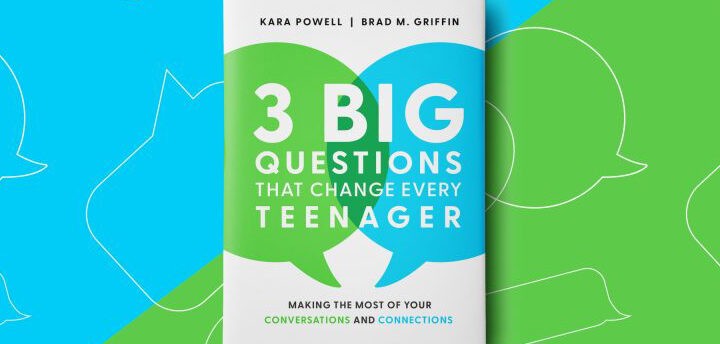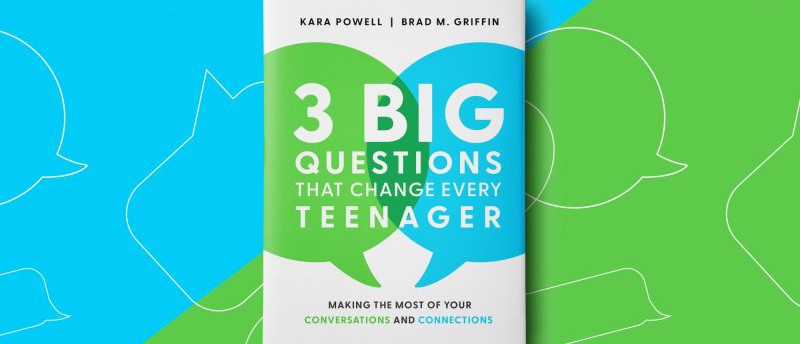Before stepping into the world of journalism, I served almost 20 years as a youth pastor and loved just about every minute of it.
If you ask just about anyone working with or parenting a teenager, they will tell you one of the hardest things about teenagers is getting them to open up and talk about their inner struggles. That’s a challenge Brad Griffin and Kara Powell are ready to dive into in their new book 3 Big Questions that Change Every Teenager. They not only give the questions that should be asked, they also allow the reader to see the research on what they discovered while studying today’s teens.
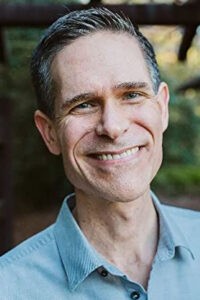
Brad Griffin
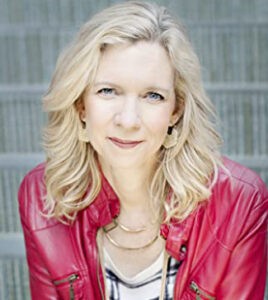
Kara Powell
Griffin, who serves as senior content director for Fuller Seminary’s Youth Institute, not only loves what he does but also loves teenagers and especially being the father of teenagers. His co-author, Powell, is chief of leadership formation and executive director of the Fuller Youth Institute.
“It’s interesting looking back working with teenagers for more than a couple of decades now and I think I started getting interested in the teenage experience when I was still a teenager,” he said. “I found a research paper from high school where I was studying teen runaways, and I laughed and thought to myself I’ve been obsessed with this for a long time.”
It’s that obsession that drove Griffin to want to know some of the key characteristics that make today’s teenagers tick.
“Every teenager is a walking bundle of questions,” he said. Among those he has identified three big questions:
- What am I?
- Where do I fit?
- What differences can I make?
Hearing Griffin tick off this list of questions, I couldn’t help but think of the teenagers in my life who would resonate with them. Griffin and his team interviewed 2,000 teenagers and held several focus groups in coming up with their assessment to what today’s teenagers need and the questions they ask.
“All of us who were involved in the research walked away with a sense (that) we are all asking these questions, we are all grappling with these throughout our lives, and they surface again and again. But for young people, the questions are on the front burner. And the more we listen and pay attention through the lens of these questions, the more we can really empathize with and understand what’s going on with the teenagers in front of us.”
“The more we listen and pay attention through the lens of these questions, the more we can really empathize with and understand what’s going on with the teenagers in front of us.”
Today’s teenagers — part of Generation Z — already have been through a lot culturally, especially in dealing with COVID.
“It was just so great to just sit in the same room and listen to each other,” Griffin recalled of the research. “It was reinforced for us how much we all need that in our lives. We need people who listen to us, but young people in particular need listening to. It’s a season of kind of feeling unheard, and the more we can be present in their lives to just show up and listen, I think we offer an incredible gift that young people really need.”
For example, “one out of two teenagers in America is living in poverty or experiencing it. They’re living in a low-income or impoverished household. That’s one out of two, and that adds a whole other layer to the experiences of COVID. Then you layer in on top of that all the reckoning with racism over this past year and the way inequities have been elevated and the inequities in health care and in COVID.”
What teenagers today need is adults who will listen to their answers.
“I so hope that people will get their hands on this content and it can help them really see Gen Z, not just as a whole, but also to really learn how to understand the teenagers who are in front of you,” Griffin said. “Also, that we can move past our assumptions because our assumptions just leave us in judgment and they can help us to push through that and learn to listen.”
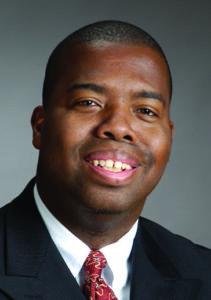
Maina Mwaura
Maina Mwaura is a freelance writer and communications consultant who lives in the metro Atlanta area. A native of Orlando, Fla., he earned a bachelor of science degree in communications from Liberty University and a master of divinity degree from New Orleans Baptist Theological Seminary.
Related articles:
Gen Z non-Christians pay most attention to those who live out their faith rather than preach it
Most young people are unsettled in the new year but few plan to turn to the church for help
American kids’ mental health is in crisis; the solution isn’t just therapy, it’s revolution | Opinion by Eric Minton

